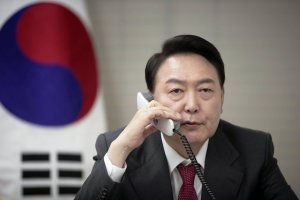South Korea lawmaker involved in crypto scandal survives dismissal vote
South Korea’s parliamentary ethics panel voted against a motion to dismiss lawmaker Kim Nam-kuk from the National Assembly due to his involvement in dubious cryptocurrency transactions.

The proposal to expel Rep. Kim was rejected in a 3-3 vote within the subcommittee, which was evenly divided between the ruling People Power Party (PPP) and the main opposition Democratic Party (DP). A majority vote was required for the motion to pass.
The vote was anonymous, but the three DP members on the subcommittee could have voted against expulsion, as Kim was a former member of their party before becoming an independent following the scandal.
Kim faced criticism after it was revealed that he owned a significant amount of Wemix coins in 2021, valued at around 6 billion won ($4.5 million) at the time. This raised concerns about the origin of the funds and potential insider trading, as well as charges related to campaign finance violations, tax evasion, and the concealment of criminal proceeds.
The national assemblyman allegedly conducted numerous crypto transactions which the prosecutors suspect were used for money laundering purposes.
South Korea’s Financial Intelligence Unit, the country’s watchdog of the finance and crypto sectors, detected suspicious activity in Kim’s crypto transactions and alerted local prosecutors last year. In a specific instance, Kim exchanged 510,000 Wemix coins, valued at approximately 3.6 billion Korean won (around $2.7 million), for KPS tokens in February 2022.
Nam-kuk, a member of South Korea’s National Assembly, liquidated additional KRW 6 billion ($4.54 million) worth of cryptocurrencies before the implementation of the Financial Action Task Force’s “Travel Rule.” He allegedly sold his digital assets without making proper disclosures to the authorities.
The lawmaker, who announced his departure from the Democratic Party, claimed that he did not cash out his digital assets but instead transferred them to another exchange. In his defense, Kim also argued that he was not obliged to report such activity to the authorities.
This decision followed Kim’s announcement last week that he would not run in the next year’s general elections, which was interpreted as an attempt to avoid expulsion and seek softer measures recommended by an advisory panel.









